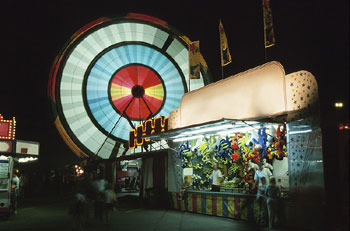 |
PRACTICING PASSION
Honour is essentially the Oz answer to Edward Albee's Who's Afraid of Virginia Woolf? Corin Redgrave is a successful literary critic. After 32 years, he is leaving his wife, Honour, who gave up her own writing career to further his (Eileen Atkins, in the performance of even her long and distinguished career), for an ambitious young journalist. Honour is made up entirely of duologues over 100 no-interval minutes. The writing ranges from Woody Allen to Eugene O'Neill in its attempts to pin down or patch together what makes a strong and loving marriage falter, until it finally collapses. Along the way, there are debates about class, loyalty, love and marital politics. Is loyalty really the prime marital virtue or just a resistance to change? Are older women more forgiving? Is a husband simply a waste of space? Joanna Murray-Smith is the most exciting Australian dramatist of her generation. Having established, with jaunty cynicism, that the wife always gets hurt, she takes a number of snapshots of this unhappy quartet -- the husband, the wife and the mistress, joined only by the couple's daughter. The same generation as the mistress, the daughter is able to see her elders' mistakes all too clearly. Honour is essentially four characters in search of a plot, but Roger Michell's intelligent production becomes an amazingly sharp profile of a doomed writer -- the very profile, in fact, that we know the journalist is never going to write about the husband she has kidnapped for her own ambitions. The problem with a play about articulate people made inarticulate by passion is that we get the message only through a series of linguistic games -- this is the Scrabble version of divorce. It is an odd mix of maudlin and mawkishness, with moments of blinding insight. Centrally, this is a play about people who want to be more but can never quite work out what more there is. They all live by rules they have broken, they don't know why the heart always wins out over the mind and why the power of love is usually only the power to destroy. In the early hours of 16 December 1969, an Italian anarchist railway worker called Giuseppi Pinelli was scraped off the pavement outside Italian police headquarters in Milan. The late Signor Pinelli, said police regretfully, had shouted "Anarchy is dead" during a routine investigation and then pushed his way past several policemen to leap out of a fourth-floor window. The Milan police, who were at the time unsuccessfully investigating several railway-station and Agricultural Bank bombings, soon found themselves having to answer one or two other questions -- such as how a suspect could push past seven armed police in such a small room. One or two local papers even dared suggest that Pinelli's departure from the police station and this life had received considerable assistance or, to cut a long story short, a shove. When Dario Fo's classic 1970 farce first played London in 1979, the miracle was its speed and topicality. In the new Donmar production by Robert Delamere, despite some excellent updating in a new translation by Simon Nye, the play is set safely back in a world of the Marx Brothers and, if you will, A Night at the Police Station. Although we get topical references to Bosnia and Elton John, what keeps Anarchist fresh is its structure. Dario Fo realised that a real-life (or rather real-death) Pinelli story in all its Italian political complexity would soon become incomprehensible to an overseas audience. So what he gives us, rather than those highways, byways and low ways, is a blunderbuss of a farce. The star of this production is the Welsh actor, Rhys Ifans, who conceives The Maniac as a weird and wonderful mix of Ken Dodd and Danny Kaye. He is the best knockabout farceur since Ben Travers. And Delamere's production doesn't let him down -- it is bleakly and blackly funny, mainly because we are never allowed to forget in the midst of our laughter that a real man died here for a cause that even he had never quite worked out. And, as in all classic farce, the only sane character is, predictably, the one billed as The Maniac.
|
Copyright 2026 Botniagames.com All rights reserved.
|
 On his way out of the stage door at the National after six years, Trevor Nunn has found that most elusive of South Bank hits, a really powerful new play for the Cottesloe. Better yet, it comes out of Australia. This is unusual in the London theatre, which routinely ignores both Anglo-Canadian and Australian drama.
On his way out of the stage door at the National after six years, Trevor Nunn has found that most elusive of South Bank hits, a really powerful new play for the Cottesloe. Better yet, it comes out of Australia. This is unusual in the London theatre, which routinely ignores both Anglo-Canadian and Australian drama.